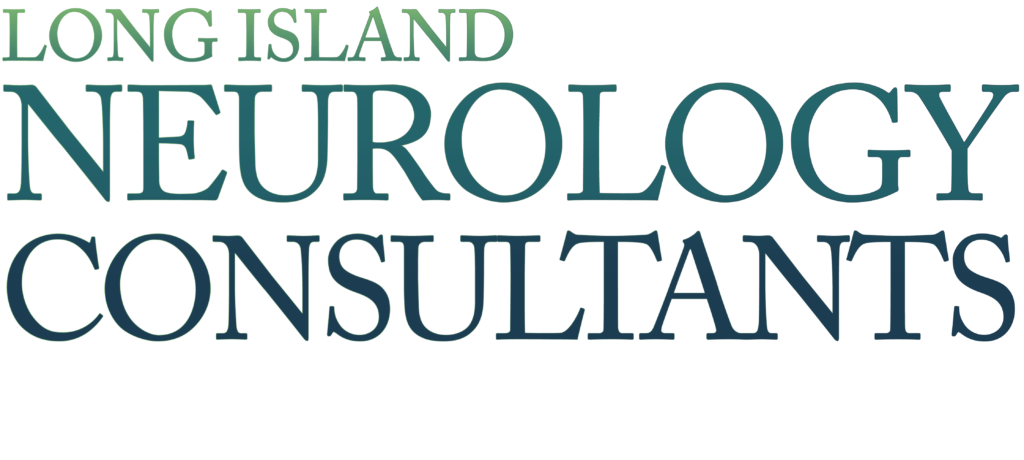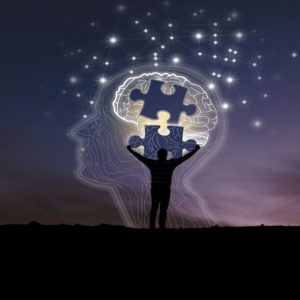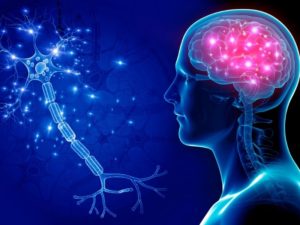Welcome To Our Garden City Neurologist

Long Island Neurology Consultants Garden City neurologist specializes in the diagnosis and treatment of disorders of the brain, spinal cord, nerves and muscles. At Long Island Neurology Consultants, we specialize in the diagnosis and treatment of neurological disorders. Our team of board-certified neurologists and physician assistants combines quality care and experience to work with each patient. We see patients and perform neurological testing at our offices in Lynbrook and Hewlett.
How Long Can Dementia Last?

Dementia refers to diseases associated with memory loss and mental function deterioration. Dementia is a progressive disease that worsens over time and occurs due to physical changes in the brain. The progression of dementia depends on the underlying cause and can progress rapidly for one person while taking years for another to reach an advanced stage. Symptoms of dementia can be addressed through Garden City neurologist. At Long Island Neurology Consultants, our team can diagnose and treat symptoms of multiple types of dementia.
Types of Dementia
Some of the most common forms of dementia that can be handled with Garden City neurologist in Valley Stream NY include:
- Alzheimer’s Disease
- Lewy Body Dementia
- Vascular Dementia
- Frontotemporal Dementia
- Parkinson’s Disease
Stages of Dementia
Dementia progresses differently in each person who experiences the disease. The first stage of dementia is mild dementia. During this stage, people can still function independently, but memory lapses and personality changes occur. On average, the first stage of dementia goes on for two years. The next stage of dementia is moderate dementia. It is more likely for someone with moderate dementia to need assistance in their daily lives. Confusion and memory loss worsens in this stage. The average duration of this stage is one and a half years. In the final stage of dementia, severe dementia, physical capabilities begin to decline, and full-time assistance is required. Severe dementia can last from 1 and a half to 2 and a half years.
Diagnosis and Treatment of Dementia
Our specialist will perform an evaluation, tests, and brain scans to pinpoint the cause of dementia and how we can help. Most types of dementia cannot be cured. But there are ways to manage symptoms. Some treatment methods include:
- Medication, such as cholinesterase inhibitors or memantine
- Occupational therapy
- Modifying the environment and simplifying tasks
Contact Our Garden City Neurologist Today!
Dementia affects memory, thinking, and social abilities, interfering with one’s life. It is best to seek a Garden City neurologist to suppress symptoms and get an expert’s opinion. At Long Island Neurology Consultants, we can assist patients with dementia and address symptoms. Contact our team today!
Fill Out This Form For Our Garden City Neurologist
What Happens If Myasthenia Gravis Is Left Untreated?

Myasthenia gravis is an autoimmune disorder that results when the regular communication between nerves and muscles breaks down. Weakness of the voluntary muscles in your body results. There is no cure for myasthenia gravis; however, you can follow treatment methods recommended by our Garden City neurologist to decrease symptoms. At Long Island Neurology Consultants, we perform neurology testing and provide treatment for multiple types of neurological conditions.
Cause of Myasthenia Gravis
An autoimmune disorder consists of the immune system mistakenly attacking a healthy part of the body. With myasthenia gravis, antibodies destroy the communication between nerves and muscles, resulting in muscle weakness. The thymus gland maintains the production of the antibodies, so if the thymus gland is abnormally large or a tumor is present, myasthenia gravis can result. In rare cases, myasthenia gravis can appear in children born to mothers with the disorder. There is no cure, but medical management can help people with myasthenia gravis live longer and more functional lives.
Symptoms of Myasthenia Gravis
People who suffer from myasthenia gravis have symptoms that progress over time. It can make any muscle you control voluntarily weak. Some muscle groups it can affect include the eyes, face, throat, neck, and limbs. If you experience any of the following symptoms, visit our Garden City neurologist:
- Drooping of one or both eyelids
- Double vision
- Impaired speaking
- Difficulty swallowing
- Change in facial expressions
- Change in the way you walk
- Difficulty holding up your head
Treatment Methods With Our Garden City Neurologist
If myasthenia gravis is left untreated, muscle weakness will progress fast, and you can become at risk of developing a myasthenic crisis, a life-threatening complication. Therefore, you should manage your symptoms with our Garden City neurologist. Treatment options include:
- Medications such as cholinesterase inhibitors, corticosteroids, and immunosuppressants
- Intravenous therapy like plasmapheresis, intravenous immunoglobulin, and monoclonal antibody
- Surgery to remove the thymus gland
Contact Our Garden City Neurologist
Our Garden City neurologist can address myasthenia gravis signs and symptoms to slow its progression. At Long Island Neurology Consultants, we can diagnose and treat myasthenia gravis and other neurological conditions. Contact our office to find out how we can help you.
Does Myasthenia Gravis Get Worse With Age?

Have you been feeling a lack of balance? You might be experiencing vertigo. Vertigo is a condition in which the person affected might feel like the area surrounding them is spinning. If you are looking for a Garden City neurologist, you have stumbled onto the right article. Our practitioners in LI Neurology can help! Keep reading to learn more.
What is Myasthenia Gravis? – Garden City Neurologist
Myasthenia Gravis is a condition that can affect anyone. However, it is especially prominent in those over the age of 50. It is shown in patients through weakness and rapid fatigue of muscles that are usually under their direct control. Listed below are some common issues patients may face:
- Weakness of arms or legs
- Double vision
- Drooping eyelids
- Difficulties with speech
- Chewing problems
- Swallowing difficulties
- Breathing
Does It Get Worse With Age?
Myasthenia Gravis is usually found in women over the age of 40 and men over 60. Myasthenia Gravis has been shown to worsen as time progresses gradually, and while there is no cure, it has been shown that treatments may improve the condition. It is also always recommended that if you face this condition, consult with your doctor to find the best solution for you as severe cases may affect breathing and swallowing, which can lead to death. One of the most common issues people dealing with Myasthenia Gravis experience is vertigo. Vertigo is the feeling that everything around you is spinning and can cause dizziness and loss of balance. While this might not seem concerning at first glance, the loss of balance can result in various injuries which can be avoided. Our physicians at LI Neurology can help you today!
Local Garden City Neurologist
Vertigo is a common condition that many people experience, but if it gets worse or becomes a recurring issue, we recommend reaching out to our office for your consultation. If you are looking for a Garden City neurologist, our physicians at LI Neurology can help! Visit us today!
What Are Usually The First Signs Of ALS?

Have you or a loved one recently been researching ALS (Amyotrophic lateral sclerosis)? At LI Neurology, our consultants assist you with any questions and provide you with a Garden City neurologist. Our practice specializes in diagnosing and treating disorders related to the brain and the spinal cord. Please continue reading to learn more about ALS.
Amyotrophic Lateral Sclerosis
ALS is a progressive neurodegenerative disease that directly impacts the nerve cells in the brain and the spinal cord, which affects our voluntary movements. Our voluntary movements can be talking, walking, chewing, etc. The nerves cannot send impulses to the muscles, which leads to muscles wasting away, which causes muscle weakness. ALS has no known cause, but scientists suggest that the environment (exposure to toxins) and genetics (mutation of SOD1 gene) play a role in developing ALS. Our physicians are trained in developing Garden City neurologists, for you or your loved one.
First Signs of ALS
ALS varies for each person and may display different signs and symptoms. This is due to the type of nerves that are affected. If you have experienced any of the signs and symptoms below, we can provide you with an effective Garden City neurologist. Here are some of the first signs of ALS are:
- Muscle twitches in the arms or legs
- Muscle cramps
- Stiffness or tightness
- Slurred and nasal speech
- Difficulty chewing and swallowing
Next Steps
When you schedule your appointment, we will review your symptoms, perform a wide array of tests, and obtain your medical history to rule out any other diseases to properly diagnose you. The following types of tests we provide are: Magnetic Resonance Imaging (MRI), Electromyography (EMG), Evoked Potential (EP) examinations, and much more. While ALS is not curable, it is treatable, which is why we will determine the appropriate Garden City neurologist.
LI Neurology – Garden City Neurologist
ALS is a rare disease that impacts your ability to walk, eat, talk, and much more. At LI Neurology, we understand the importance of appropriately diagnosing and treating ALS. Our trained neurologists and physician assistants are here to help you on this journey. Contact us today!
How Does Nerve Pain Feel?

Sometimes, it can be difficult to understand our bodies and our sensations. How do we know if a certain feeling can potentially harm our bodies? If you think you are suffering from nerve pain, LI Neurology can help you today. Our Garden City neurologist can provide you with a comprehensive assessment to determine any diagnosis you may have that is related to your nerve pain. If you want to learn about nerve pain and what conditions it can lead to, continue reading!
Nerve Pain
Nerve pain occurs when there are issues in the brain or spinal cord or the nerves that run through the muscles and organs. Diseases, injuries, infections are some reasons you may encounter nerve pain. But what does it feel like? Listed below are some examples of what nerve pain feels like. If you believe that you experienced any of these symptoms, please schedule an appointment with a neurologist in Oceanside, NY, to further evaluate you. The following signs of nerve pain are:
- Stabbing, burning, or shooting sensation
- Numbness and tingling
- Loss of sensation
- Muscle weakness
- Sensitivity to temperature
- Loss of balance
Conditions That Cause Nerve Pain
You may have been experiencing nerve pain, so maybe it’s time to seek medical help if these signs are early indicators of particular conditions. Our Garden City neurologist, at our office, provides thorough assessments to diagnose you accurately. Below are some of the conditions that can potentially cause nerve pain:
- Multiple Sclerosis: A disease that affects the brain and spinal cord
- Parkinson’s Disease: A progressive disorder that impacts muscle control
- Carpal Tunnel Syndrome: Compression of the medial nerve
- Herniated Discs: Ruptured disc that causes numbness and tingling sensation
- Brain Tumor: Noncancerous or cancerous cells growing in the brain
Contact Our Garden City Neurologist
Nerve pain can be hard to detect, but we are here to help you. At LI Neurology, we will tackle any concerns that you may have. Our Garden City neurologist will listen to your signs and symptoms and evaluate you if necessary. You no longer have to live with any doubts about your nerve pain. Contact us today to provide you with an evaluation and treatment for optimal results.
What Triggers Vertigo Attacks?

Vertigo attacks are the sensation that you or your environment is spinning. This is very common and can happen to anyone but most commonly for people over the age of 65. Nearly 40% of the United States adult population experience this at least once. Around 90 million Americans search for medical help for vertigo problems. If you are experiencing vertigo attacks and are looking for a Garden City neurologist, then LI Neuro is here to help and provide you with any necessary treatment.
Symptoms of Vertigo Attacks
- Yourself or the environment is spinning or moving
- Difficult to find balance
- Dizziness
- Feeling sick
- Problem focusing your eyes
- Ringing in your ears
- Nausea
- Problems or loss of hearing
What Are The Triggers of Vertigo Attacks?
There are many reasons why someone can be experiencing a vertigo attack.
- Impact on your head
- Migraines
- Damage to the inner ear
- Infections
- Meniere’s disease
- Heart arrhythmias
- Various movements in the case of benign paroxysmal positional vertigo
- Tipping your head backward
- Bending your head forward (picking things up)
- Rolling over your bed
- Moving or changing positions quickly
- Stress, anxiety, depression
How To Prevent Vertigo Attacks
What a lot of these triggers have in common is fast movements. To avoid this, try to move slower and steadier to avoid any sudden triggers. Many people feel this sensation when bending down to pick up and feel dizzy after getting up, so bending your knees to keep yourself balanced and your head upright can help prevent this. You can also do simple exercises to help treat your symptoms and get your body used to it. If your condition prevents you from completing your day-to-day tasks, you should seek medical help. There are medications, exercises, vestibular rehabilitation training, etc., to help you. If you are looking for a Garden City neurologist, you can visit us at LI Neuro.
Best Garden City Neurologist
Vertigo attack is very common and can occur at any time and anywhere. If you find yourself experiencing severe symptoms, visit a Garden City neurologist, to receive the treatment you need and feel your best self again!


